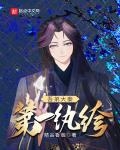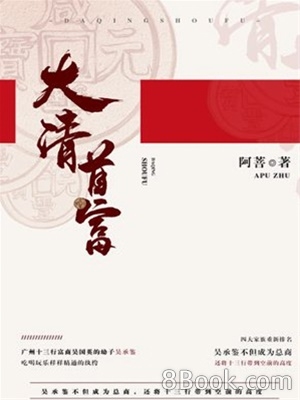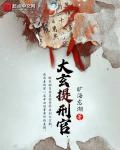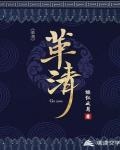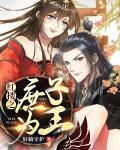Volume 3 Chapter 5: The boat may sink (Part 1)
In early April, early summer, in Wende Hall, the first grand court meeting after the emperor returned to Tokyo was in chaos.
This confusion comes mainly from three sources:
One reason is that due to the lack of money and grain transportation from the southeast, many things that should have been done smoothly are difficult to carry out, and everyone can't help complaining.
In another place, there was chaos in Guanzhong. With no way to counterattack in northern Shaanxi, the debate on how to deal with Qu Duan, Wang Xie, and Wang Shu had reached an extreme point...
Wang Shu was a pro-war civil official with no problem in his stance. He was the absolute leader of the civil officials before Yuwen Xuzhong entered Guanzhong, and was also the representative of the Song Dynasty there. This time, he personally led the army to fight against the Jin army, but was defeated miserably, losing his army and territory.
Wang Xie was a bandit or a rebel. He had fled when he heard the news before, but this time he obeyed the order and went to fight. He was defeated, and after the defeat he actually fled all the way from northern Shaanxi to Fengxiang. It was obvious that he was a useless person who could not do anything good but was more likely to cause trouble. However, this useless person was still obedient on the surface.
As for Qu Duan, he is the most controversial person. His arrogance and domineering have become a consensus of the entire court. In this battle, he first refused the call of his official superior Wang Shu on the grounds that he would definitely lose, and then did not participate in the war at all. However, after the defeat of Wang Shu's army and the annihilation of Wang Xie, he maintained the defense line on his own and limited the offensive of the Jin army to northern Shaanxi, preventing Wanyan Loushi from taking advantage of the situation to expand the results of the battle, and finally waiting for Talan from the Central Plains to leave for the north... In other words, it now seems that he is the one who has grasped the truth and is misunderstood by everyone.
Under such circumstances, it is no wonder that everyone was arguing endlessly about how to deal with these three people.
The first two events were okay and were more or less objective. But what really caused the situation to get out of control was undoubtedly the violent reaction of the civil and military officials to Liu Yu's enthronement.
But in comparison, Emperor Zhao, who was sitting on the throne, was too indifferent.
To be honest, looking at the ministers in the palace who knew his attitude but were still indignant, Emperor Zhao didn't know when his mind started to wander. He just kept thinking, what was going on in the current situation?
The question is actually very simple. Why didn't we feel so powerless when we were in such a difficult situation in Nanyang? Why did we feel so powerless now when we risked our lives to win a victory and made the country at least look like a country on the surface , but we feel that things have become a mess?
But from another perspective, I have been the Emperor of Zhao Song for nearly two years without realizing it. From wanting to run away and jump into a well to commit suicide to "return to the throne" in the beginning to now doubting that I can't control the situation, I can only say that time is really a butcher's knife.
But when you think about it, not to mention compared with Nanyang, just compared with two years ago, what is the difference between the current situation?
How much worse could it be?
At that time, the Zhao Song court was basically just a small court in exile, and the danger of national destruction was imminent.
At that time, I was a useless person who knew nothing and could only pretend to be a woodcarver and look for Li Gang... Of course, I am not much better now... but I have made progress.
But in a nutshell, some things, whether it is the so-called "old events in Hebei" or personal issues like Concubine Pan, since they were "admitted" in front of Zong Ze that day, there is no need to cover them up... What should be faced must be faced, and some things also need to be resolved.
"Your Majesty!"
Zhu Shengfei, the newly appointed Minister of Rites, who was strongly recommended by Lu Yihao, spoke for a long time, but there was no response from Emperor Zhao for half a day. In this regard, the good-tempered Zhu Shengfei did not say anything, but it aroused the dissatisfaction of Xu Jingheng, the Prime Minister. "The Minister of the Court is talking to His Majesty!"
"I am guilty." Zhao Jiu, who looked like a sculpture today, finally spoke.
Xu Jingheng was stunned on the spot, and then he became embarrassed: "That's not what I meant..."
"What's that saying?" Zhao Jiu continued. "If I am guilty, then the others are not guilty? If the others are guilty, then the guilt lies with me alone?"
"If I am guilty, I cannot blame the people. If the people are guilty, the fault lies with me... from The Analects of Confucius, Yao said." Xu Jingheng, as a Confucian master, instinctively corrected Emperor Zhao, but then he quickly realized that although the emperor had refused to attend the imperial lecture for a long time, now was definitely not the time to give a lecture. Not only that, the emperor suddenly said this, which made people nervous. "But the meaning is the same. Gong is my own meaning, and the emperor does not need to care... and what we just talked about was just how to refute Liu Ni and set the record straight. How does it involve the emperor's guilt?"
"It's good that you didn't make a fool of yourself." Zhao Jiu had no expression on his face and spoke calmly, which made the officials in the front of the hall who had followed the emperor for at least half a year or at most two years feel inexplicably panicked. "However, I am talking about the traitor Liu... He has issued a proclamation, and we are just criticizing him in this hall, what's the point?"
"That's exactly what I meant." Someone behind him obviously didn't realize the atmosphere was not right and couldn't help but interrupt. "To deal with Liu Ni, we should use a large army to annihilate him. After capturing him alive, we should punish him according to the law. Only then can we set things right. What's the point of just a few words?"
"That's not what I meant." Zhao Jiu raised his voice slightly, but his tone remained calm. "I thought that since Liu Yu had issued a letter of denunciation, pointing out my various faults that day, why don't I issue a self-criticism edict to take the initiative to clarify and set the record straight?"
Lu Yihao was not there, and it was the first "regular court" in Tokyo city in almost many years. There were many people, and everyone had a strong desire to perform, so order was inevitably out of control for a while.
Amid the noise, some people knelt down hastily to apologize, some were terrified, and some hurriedly refuted... Even Xu Jingheng was stunned for a moment. He stood there, very much suspecting that Emperor Zhao was still angry with him because of the previous incident and wanted to use this kind of thing to embarrass the officials here.
After all, a self-criticism edict is almost the lowest political stance of an emperor. How can he issue a self-criticism edict just because the other party issues a manifesto to scold him?
If that were the case, wouldn't that be admitting guilt?
Even the statement that he confessed without being accused is not correct, because this official had just resisted the invasion of the Jin army and then returned to the old capital. He also has political reputation. There is no reason for him to issue an edict of blaming himself at this time, right?
So if the emperor issued an edict of guilt, how should these civil and military officials deal with it? If we really want to talk about responsibility, Liu Yu, a legitimate Jinshi and an elite civil official of the Song Dynasty, became a traitor and a puppet emperor. What should these scholars do? In fact, it is hard to say how much of the heated debate today is because they really care about Liu Yu and how much is because they want to prove their political stance.
But soon, Xu Jingheng, Lu Haowen, and Wang Boyan all realized a serious problem. No matter whether the official was joking or angry, if they did not stop him, he would probably let Xiaolin Xueshi write a self-criticism edict! He could even send it directly to various places in the army through his own channels... That would be like Bao Longtu, "I might as well go home and sell lotus roots"!
"quiet!"
In panic, Xu Jingheng suddenly turned around and shouted sternly, "Where is the Imperial Censor in the Palace? Immediately record those who have behaved inappropriately! Where are Yang Yizhong and Liu Yan? Quickly bring in the imperial guards to discipline them!"
The hall was suddenly noisy, and then suddenly quiet.
"Officials."
In the silence, Lü Haowen took the lead and led the other two ministers to bow and salute in a serious manner. "This time, Liu Ni's words are absurd and not worth a laugh; his pseudo-Qi country is not only a vassal state established by the Jin people, but also a mere seven states, and is divided and occupied by people like Li Cheng and Kong Yanzhou. The situation is ridiculous... Why do you need to issue a self-blame edict for this?"
Do you also know that it is not worth a laugh? Do you also know that its shape is ridiculous?
Zhao Jiu felt powerless in his heart, but he didn't show it on his face: "No need to say anything, I have made up my mind!"
"Officials!"
Lu Haowen was almost in despair. "Liu Ni's words are really not worth refuting..."
"I think I still need to refute it." Zhao Jiu answered calmly while sitting on the throne. "Liu Yu's article probably scolded me in two ways... One is 'he was ordered to make peace, but he tried to hide himself; he led troops to defend himself, but he used them to protect himself', and the other is 'he could not bear to look down on his father and brother'... The former is his forced speculation of my thoughts before I ascended the throne, which is not worth mentioning, but the latter is the truth known to everyone in the world, and I have to give everyone in the world an explanation."
After Lu Haowen, the bureaucratic elites of the Song Dynasty almost woke up immediately, but their reactions were different.
The lower-middle class, or the relatively lower-middle class, and most of the new officials, generally breathed a sigh of relief... Because according to these people's understanding, Emperor Zhao's strategy was to avoid the real issue and first ignore the most serious moral accusations (that is, he was ordered to make peace in order to hide himself; he led troops to defend the country and it was actually a means to protect himself), and focused the issue on filial piety, complaining to the people of the world, so as to win the support of public opinion... After all, everyone knows that the two emperors' hunting in the north is an objective reality, and Emperor Zhao's "bearing to watch his father and brother" is also a very helpless objective difficulty.
But some people, especially those who had been in contact with Zhao Jiu for a long time, from several prime ministers to Hu Yin and others, almost immediately woke up and were all pale. Because they understood the official's true attitude towards his "father and brother" better than anyone else.
Apart from anything else, the remarks made by this official on the royal heir incident at the Genyue ruins a few days ago were certainly an attempt to win people's hearts, but the disgust and resentment towards the two saints in his words could not be false.
In other words, once this official issues a self-criticism edict to explain the problem of "tolerating his father and brother", based on his personality and the resentment he feels after the death of his wife and son, he will most likely use the name of the self-criticism edict to thoroughly settle accounts with the faults of the Jingkang Incident, and then formally and publicly push the responsibility for the Jingkang Incident onto the "two saints"!
Of course, the word "push" seems a bit inappropriate.
After hesitating for a moment, Hu Yin almost gritted his teeth as he stepped out to bow, then trembled and said, "Your Majesty... your servant... your servant..."
"How is Mr. Hu?" Zhao Jiu calmly looked at this young master of Confucianism, who was the person he had followed for the second longest time after Lu Haowen and Zhang Jun.
"Your Majesty, please revoke your order." Hu Yin was almost in tears.
"I have made up my mind." Zhao Jiu sighed. "Hu Qing, you have been with me for nearly two years, you should understand that there are some things that cannot be avoided."
Hu Yin was completely helpless, but burst into tears.
Most people around him still thought that Hu Zhongcheng was loyal and did not want the government to damage its reputation... However, people like several prime ministers and Scholar Kobayashi knew very well that Hu Mingzhong, a young master with profound attainments in Confucianism and Taoism, was forced into a corner by the government.
When Liu Yu proclaimed himself emperor, his reaction was the most intense, because this was a subject's rebellion against the emperor, which was a serious insult to his beliefs; now the government wanted to publicly determine the blame, even if it was through the "edict of remorse", but in fact it would inevitably touch upon the "two saints", which was like judging the father by the son and the elder brother by the younger brother... This was also difficult for Hu Yin to accept.
After all, the two words "Gangchang" and "Changde" were the theoretical basis for Hu Yin and his group to persist in their fierce resistance against the Jin army.
Because of the moral principles, the "father, brother and two saints" had great hatred after being captured, so they had to fight against the Jin with the most intense attitude.
But now, Zhao Guanjia used this method of self-blame to bypass the moral principles on the surface, and by classifying himself as a "criminal", he gave most Confucian officials a reasonable explanation, so it is hard to say that he is purely "judging the father by the son and the brother by the younger brother"... Besides, those two are monarchs, but the one in front of him is not a monarch? It's like this, what else do you want? Therefore, there are many people who understand the scene, but none of them are so intense.
Only Hu Yin was too straightforward and couldn't get around this problem for the time being.

